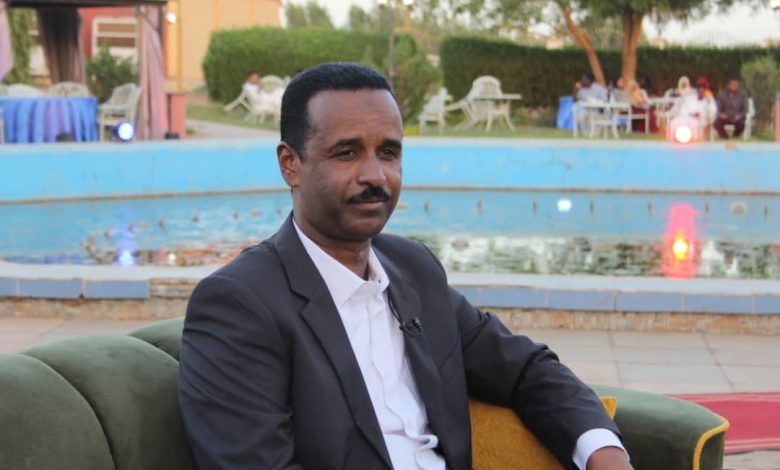Musician Dr. Walid Al-Jak in the talk of art and politics
Lack of believe in the role of art is a major cause of failure

* My absence from participating in the independence celebrations is an unpleasant feeling
* I do not expect the war to constitute a turning point in art
Dr. Walid Al-Jak, a violin specialist and assistant professor at the Faculty of Music and Drama, deals with the arts, which do not receive sufficient attention from officials to perform their role as they should, because of their role in conveying the message more quickly, or as he said, entering homes without asking permission, but reaching the whole world, while he was far away on a refugee journey. Evidence that rises to the level of a sophisticated lecture between politics, art, and society.
Sudan Events: Magda Hassan
Art and society
Dr. Walid Al-Jak is not expected that the war constitutes a major turning point in art. Art will remain as it is and the artists as they are: The most important question is whether we will change as a Sudanese society, change ourselves, our nature, the details of our lives. If these things change automatically, art will change because it is not separated from life, just as it does not live in isolation from it. Society, and all of this depends on a comprehensive change in the Sudanese way of life. He added: As we see in the deterioration that occurred in society, there was a parallel deterioration in art and in people’s morals, behavior, treatment, and feeling toward others.
It is a connected chain that represents a contract, and art is part of it. If society is reformed, then art is reformed. Society is corrupted, art is corrupted.
failure
On the other hand, he believes that the war is supposed to be a real turning point and a new starting point for the Sudanese, in which he tries to restore the prestige of the Sudanese and his well-known personality. He assumes that we will wake up from the coma and return the beautiful Sudanese people with their customs and traditions. He sees Dr.
It is noteworthy that culture and the arts failed to be one of the ways out of this crisis.
They did not fail because there are no efforts in this direction. Rather, there are many efforts, but there is little faith in them on the part of those responsible.
He stressed that officials in the state and society, not believing in the role of art, are a major reason for the failure that befell the arts as a tool for change at a time of crises occurring in the country: There is a lack of recognition that culture and the arts can lead society to safety, especially since art enters homes through their widest doors. In particular, the art of singing and music has no limits and reaches all parts of the world, but if we do not plant the fruit of faith in culture and the arts in people’s consciences, they will not have a prominent role in change. Rather, I see that there is a limitation of the role of the arts and there is not even interest in them.
Independence and frustration
Displaced or refugee, it makes no difference to Walid. The important thing is that, as someone said, he left his country under duress.
What is most painful is his participation in the celebration of Independence Day, accompanied by the choir of the College of Music and Drama: Our absence from participating in independence is an unpleasant feeling, especially since we are talking about the independence of the will of the affairs of a state that has become independent from an occupier in order to be independent and manage its affairs in a way that meets its aspirations and is in line with its society, and this is true independence.
He said that the most painful thing is that the state is run by its people and fails to manage independence from its history until today.
There is a feeling of shame and frustration. We failed to manage our state in the desired manner. We failed to develop our society and the form of our lives. However, despite that, it was a special and special day in which we celebrate and glorify national singing, but with Current events did not give us a sense of freedom, justice and development as a result of the accumulation of political action, but we hope that life will return with the return of the homeland and all Sudanese will celebrate.
Cultural diversity
Walid stressed that the cultural diversity that exists in Sudanese society is not supposed to be its tone one day, but rather it is a blessing and one of the characteristics that distinguishes Sudanese society, but how to manage this diversity in all its forms, cultural, tribal, and social, is the problem, and when this is managed.
Proper diversification will give positive results.



